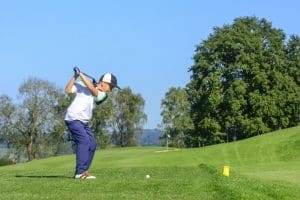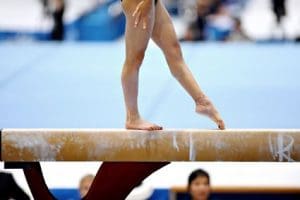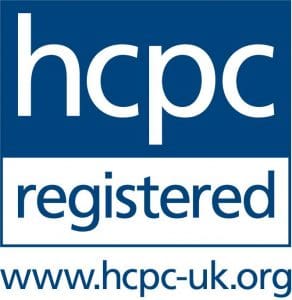Frequently Asked Questions
Below are a range of popular questions we get asked by parents and coaches when discussing children’s sport performance and enjoyment of sport. You’ll also find some additional resources too, which should be of help to you.




Do you offer online sessions for children?
Yes, we provide online sports psychology support for children and young adults globally via Zoom, Teams, or Google Meet. It’s flexible, secure, and just as effective as face-to-face sessions.
Where do you offer face-to-face sessions?
Our base is in the United Kingdom, offering local in-person support for athletes and families near Newcastle Upon Tyne and the surrounding regions. However, in our small team our practitioners do serve their local communities too. We offer face to face support to children and families in the Midlands, near London, the South East of England, in Ireland. As well as offering assistance in Italy and India.
How long is each session?
Sports psychology sessions with children typically do not last as long as adults. 40 minutes is likely to be the maximum time frame for a session with a child who is aged between 7 and 16 years old. It is not uncommon to do 30 minute online sessions via Team, Zoom, WhatsApp or Facetime too.
Please note we are flexible too and can offer longer practical sessions on golf courses, tennis courts, football, cricket, hockey or rugby pitches… if it is desired by parents.
How many sessions are usually needed?
Meaningful change usually takes around six sessions, approximately four hours of support. We do not offer one off sessions. Lasting progress develops with continued practice similar to strength training for the mind. Neurodivergent children often require more time and it is not uncommon for us to work with them and their families for more than eight hours (twelve + sessions).
Are parents involved in the Sports Psychology sessions?
In the Sports Psychology sessions we like to involve parents in some way. We agree with your child the best way for it to happen. Some children may prefer that you sit in the session and contribute – if that helps them open up and feel more relaxed, this approach is fine. Other children are more comfortable with their parents out of the way. In this case, we’d spend 10-15 minutes at the end of the session discussing what we had covered in the session as a team with the parent(s). On occasions, we work solely with the parents so that they can reflect on their behaviours and work with their child or children differently. We also have a range of resources that parents can take away to improve their knowledge of sports psychology and what to do or what not do around their children before, during and after competitive events and training sessions.
Do you work with athletes for long periods (e.g., 2–3 years)?
Yes. Some families have a preference for long-term assistance, allowing us to become a trusted, impartial support who challenges thinking, tracks progress, and helps children and young athletes grow on and off the field or pitch. This tends to be the case for the more gifted child or young adult who is playing their sport at a high amateur level or professionally.
Demystifying Mental Toughness Podcast

Demystifying Mental Toughness is a podcast for people who want to reach their goals faster and are curious what high performing athletes and professionals do to fulfil their potential. David Charlton, the host also seeks to provide practical support for parents and youth coaches from time to time with solo episodes or meaningful interviews.
How much does a session cost?
Fees vary depending on the type of delivery that we offer, (online or face-to-face) and who supports your child. Our practitioners have specific skillsets and are at different stages of their careers which can dictate the price. We discuss options transparently through email or in an initial conversation. Please note our prices are affordable and are in line with what other sports coaches and physical therapists charge.
Can we organise a free session to see if my child is comfortable with the set up?
Yes, we are confident in our engaging approach so can be flexible for parents who are worried if their children will take to Sports Psychology sessions.
How do I get started?
You can contact us directly via our Get Started page where we can set up a free initial call to discuss your child’s needs, goals, and the best way forward.
What are common challenges that you help children with?
Sports psychology covers a wide range of areas from developing mental toughness to improving confidence and communication skills. Mental health prevention, dealing with injuries and skill acquisition are other areas. However, to make things easier for you, below is a list of our top 10 common challenges that we help children with.
- Dealing with criticism from coaches and teammates
- Being too hard on themselves during a match or competitive event
- Hiding in the background and not expressing themselves fully
- Lack of enjoyment or thoughts of quitting sport
- Poor body language
- Troubles communicating with other people
- Catasphrophising about their form or their future (eg. In academy’s a lot of pressure is put on children which can impact on their confidence levels)
- Worrying too much about what other people think
- Loss of skills (eg. An inability to transfer practise and training to competitive events or lost move syndrome in gymnastics)
- Being too nervous before competing
How do I know if Sports Psychology coaching will work for my child?
1-2-1 sports psychology coaching can be a very effective method to improve children’s enjoyment and sport performance levels whilst making lasting changes to their overall mindset and providing valuable life skills. We are very lucky to have had a lot of success in this department in the last 10 years. However, that said, we cannot guarantee results in every case. Each individual’s results do vary as every situation is different. Being motivated and open-minded are 2 keys to sports psychology tools working well.
Can Sports Psychology coaching help my child enjoy their sport more?
Most parents face this challenge from time to time and can struggle encouraging their children in sports. At some point it’s pretty inevitable that something happens and your child or children don’t want to go to train or compete.
So how, as parents, can we help them get over that?
One helpful thing is to understand why. Have they burnt out and done too much? Is it lack of motivation? Is it that their interests have changed? Or are their coach or you, as parents, putting them under too much pressure?
Once you have worked out the cause then you’ll be better placed to find a solution. Sometimes the best and only solution, though very difficult for parents, is for the child to walk away from the sport for a short time or for good.
Below are 2 quizzes that parents have found find very helpful in finding the cause of their child’s unhappiness.
If you ask your child or children to take the quiz and you also take the parental quiz (without comparing notes). Then go on to discuss both results. It should open up a nice conversation and help you get a better feel for why your child chooses to play sport and where things have gone off course.
Click on the links below to find out more:
To Learn More about Sport Psychology for Children and Parents
Have you worked with elite or academy-level young athletes?
Yes. Despite the growth of Sports Psychology in the last decade in elite youth sport environments many parents come to us for a safe and trusting space away from their child’s coaches and support team.
We’ve been lucky to support hundreds of young athletes across elite academies, county and national squads and into the professional ranks of their sports. To name drop! Some of the clubs and organisations they have been involved with include; Chelsea Football Club, Manchester United Football Club, Newcastle United Football Club, Surrey County Cricket Club, Kent County Cricket Club, Durham County Cricket Club, British Gymnastics, Scottish Gymnastics, England Golf, British Triathlon, British Cycling… the list goes on!
What qualifications do you have as Sports Psychologists?
We are a team who either have Health and Care Professions Council (HCPC) registration as Practitioner Psychologists or we are on the pathway working towards accreditation with The Chartered Association of Sport and Exercises Sciences (CASES) on the Sport and Exercise Psychology Accreditation Route (SEPAR). In all cases our team have advanced training and extensive experience supporting children, teenagers and young athletes.
Do you specialise in working with children and young athletes?
Yes. We at Inspiring Sporting Excellence we focus specifically on supporting children and young athletes aged 7–21+, helping them develop confidence, resilience, focus, and enjoyment across a wide range of sports and competitive levels.
What makes sports psychology different for children compared to adults?
Children’s brains, emotions, and motivations are still developing, so our approach is more playful, practical, and collaborative. We use age-appropriate tools and real-world strategies to help them learn, stay engaged, and enjoy sport.
How do you measure progress?
We track both qualitative and quantitative changes confidence, enjoyment, and performance through discussion, reflection, and psychometric testing or performance profiling where suitable.
Do you only work with kids or young athletes who have problems?
Not at all. Many kids and young athletes we work with are performing well but want to gain a mental edge, strengthen their focus, or prepare for higher levels of competition or the professional ranks.


